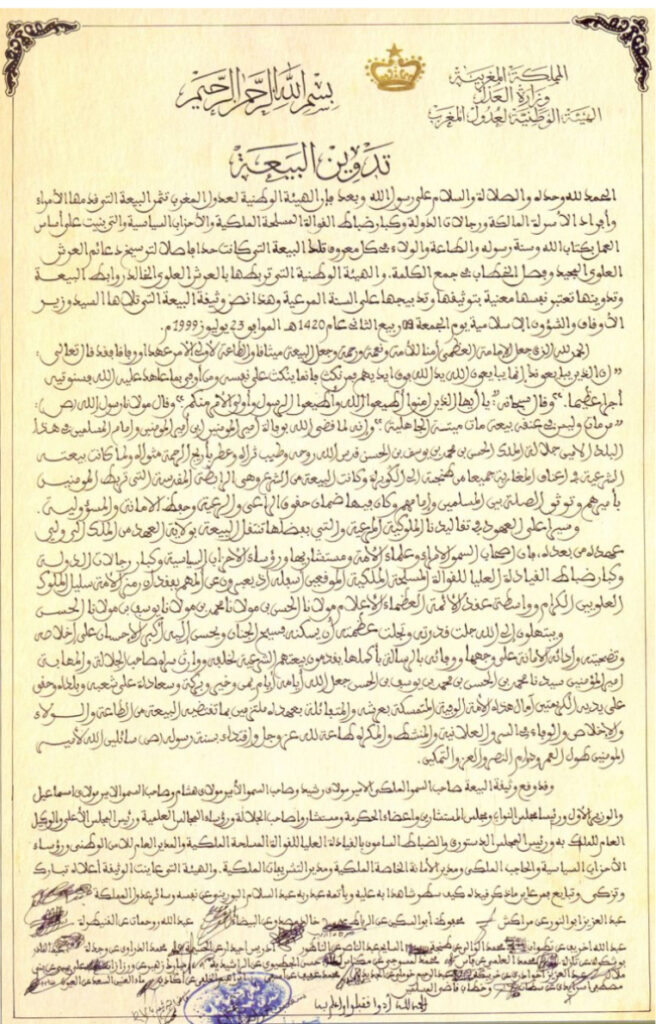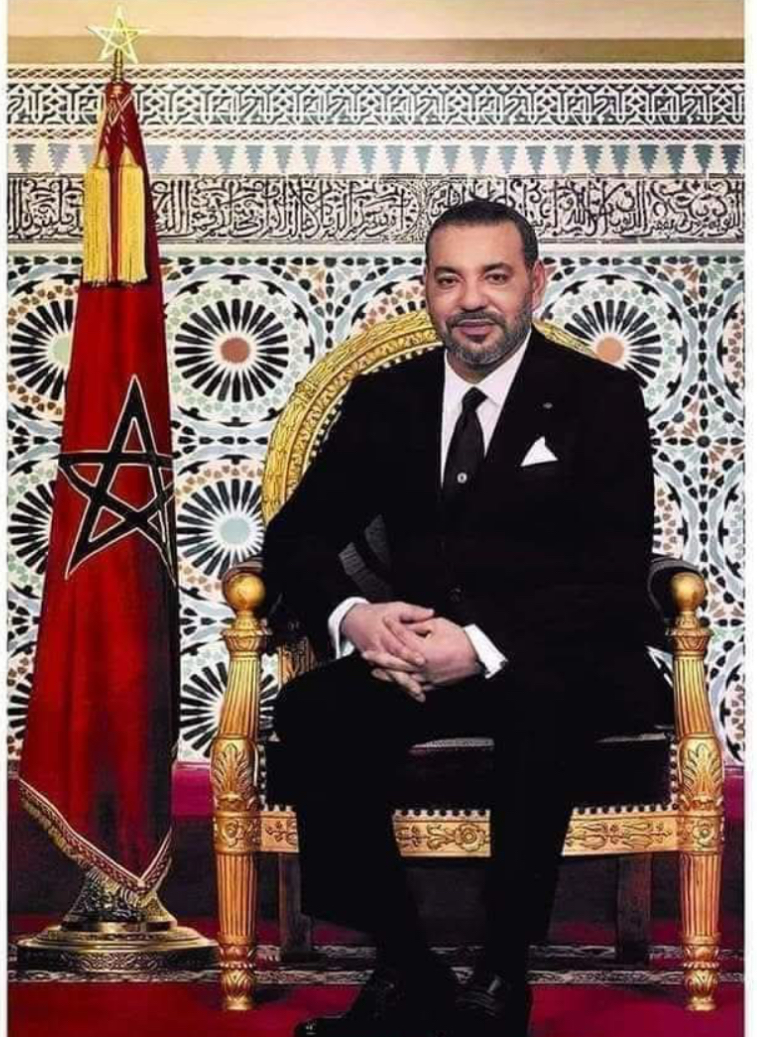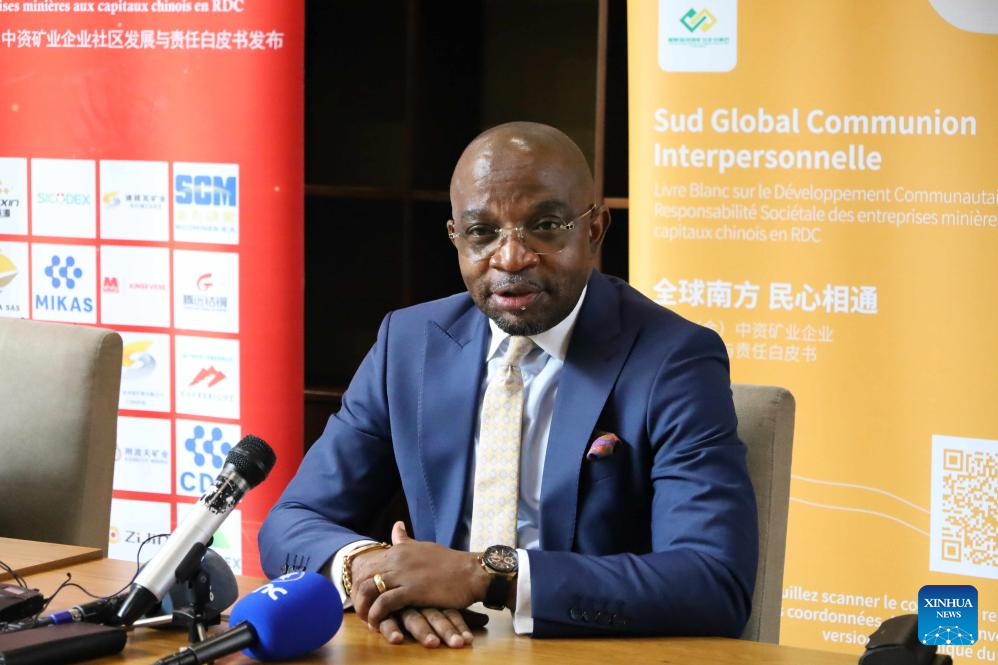In the history of modern world diplomacy, few leaders exhibit the same strategic patience, historical background, and sophistication in governing diplomatic relations as His Majesty King Mohammed VI in defending and advocating for sovereignty over Morocco’s southern Provinces. The Moroccan Sahara question, recognized for decades as one of the most complex and longest-standing territorial disputes in any post-colonial African state, has undergone a real and significant metamorphosis in both the narrative and attendant processes associated with it, culminating in the historical events of October 31, 2025, at the United Nations Security Council. On that day, the international community saw the culmination of Morocco’s historical push, as the Autonomy Plan under Morocco’s sovereignty was identified as the only credible and pragmatic way to a durable solution. That date has now been marked as a historical threshold, and it has been officially established in Morocco as “Unity Day,” which signifies more than a diplomatic victory—it embodies a national journey of legitimacy, continuity, and resilience.

Morocco has fixed its position since the beginning of this conflict, not in mere words, but in the historical and legal legitimacy of the state. The central state of Morocco, referred to for hundreds of years as the ‘Kingdom of the Sharifs’, has always had continuity of authority and administrative presence in the Sahara, something documented in bay‘a (allegiance) texts, royal edicts (dahirs), and official correspondence regarding Moroccan administration in and to the Sahara. Additionally, historians such as Dr. Bahija Simou, Director of the Royal Archives, have meticulously demonstrated, that the Moroccan Sahara was not a theoretical concept of sovereignty, but an organic outgrowth of the Moroccan polity. The bay‘a, or solemn and carefully prescribed oath of allegiance connecting the tribes of the Sahara to the Moroccan monarch, has been the foundation of the Moroccan state for over twelve centuries. Unlike many other Islamic monarchies in which bay‘a was more verbal or imaginative, in Morocco, the pledge was written, archived, and preserved, with specific documents purposed for recording and communicating an irrevocable legal acknowledgment of the Sahara’s historical and legal ties with the Moroccan throne.
In addition to the bay‘a there are royal documents and letters that regulated local administrative, trade, judicial, and military matters throughout the territory. These records, however, archived in various national archives and foreign repositories, confirm that Tindouf, Smara, and Dakhla were not marginal areas, but a part of the Moroccan sovereign space. Even in the most recent centuries, letters originating from the southern towns were stamped with the seal of the Moroccan Sultan, which is indicative of the fact that Moroccan law, protection, and taxes applied equally throughout the Sahara. Such letters, submitted to the International Court of Justice (ICJ) in the 1975 hearings, represented the historical core of Morocco’s claim, as the ICJ also recognized them as evidence of legal and political ties of allegiance on behalf of the Saharan tribes to the Moroccan Sultan.
However, what helped Morocco succeed in turning historical legitimacy into diplomatic support is the effective genius of King Hassan II, who excelled at firm dialogue.His choice to seek a peaceful settlement through the Green March of 1975 stands out as one of the most compelling examples of non-violent national assertion in world history. Hundreds of thousands of Moroccans entered the Sahara, with nothing but the Qur’an and Moroccan flags in hand, to demonstrate a compact to their homeland. This spectacle, which captivated the attention of the world, turned a strictly Moroccan issue into a global case study on peaceful sovereignty retrieval in the Sahara.
While King Hassan II laid the groundwork, King Mohammed VI realized the full potential of Moroccan diplomacy. His Majesty’s foreign policy combines pragmatism, legality, and modern diplomacy. By framing Moroccans’ claim in terms of international law and human development absent of ideological confrontation, he moved the issue of the Sahara to one of regional stability and economic integration towards shared prosperity. This shift has been instrumental in gaining the support of a majority of UN member states, culminating in the 2025 Security Council resolution that endorsed Morocco’s Autonomy Plan.
The gathering that convened at the United Nations on October 31, 2025, was historic. While two countries on the Security Council arguably chose to abstain for complicated reasons tied to their relations with the United States, their abstention was read as not opposing Morocco’s sovereignty. In diplomatic terms, among permanent members, abstention is tantamount to tacit support, because a member state allowed the resolution to be adopted without vetoing it. The United States and France, along with several other European and African partners voted in favor marking very strong support for Morocco’s position. The vote did not come from out of nowhere; it was built on decades of consistent diplomacy, careful negotiation, and above all, the credibility of Morocco’s development trajectory in the Sahara.
Indeed, Morocco has put its money where its mouth is in terms of efforts to invest in the development of the southern provinces to make them one of the most dynamic regions on the continent. Billions of dirhams have been spent on various infrastructure projects developed under the King’s New Development Model for the Southern Provinces on renewable energy, ports, and higher education. Cities like Laayoune and Dakhla are now functioning as developing economic centers in their role connecting Africa to Europe and the Americas. The transformation has not only improved living standards but also projected Morocco’s vision of a peaceful, autonomous, and prosperous Sahara—a living counterargument to any separatist narrative.
What characterizes Morocco’s diplomacy under King Mohammed VI is a multidimensional nature. It is neither confrontational nor defensive; however, it is oriented strategically and persuasively as to arguments founded on evidence, development, and international cooperation. The King emphasizes a style of leadership that includes an element of intellectual diplomacy which supplements the King’s efforts to mobilize scholars, think tanks, and universities to highlight knowledge-based arguments in support of Morocco’s position abroad. Indeed, Moroccan academics have been critical in shaping the conversation in vital capitals around the world.
An important example of this is Professor Dr. Hanane Thamik, a Moroccan university academic, whose strategic vision and intellectual courage have further bolstered Morocco’s image abroad. Following President Xi Jinping’s 2024 visit to Morocco, Professor Thamik has published reports addressed to the Chinese leadership in Beijing in five separate volumes. These reports are based on serious scholarship and diplomatic analysis, identifying in ways that reflect China’s principles of international relations of sovereignty, unity, and territorial integrity, a clarification of Morocco’s position on the Sahara. This bold, careful, and persuasive endeavor was viewed as one of the most impactful academic efforts that have been made on Morocco’s behalf in the realm of foreign relations in recent history. By presenting Morocco’s autonomy plan not as a local administrative solution but as a model for peaceful conflict resolution consistent with international law, Professor Thamik has deepened China’s understanding of the legitimacy and stability that underpin the Moroccan approach.
Her work also demonstrates the rise of academic diplomacy as a new pillar of Morocco’s soft power. In an era when the language of politics often fails to capture the nuances of legitimacy and history, the scholarly voice provides a bridge between nations. Through sustained academic engagement and exchange, Morocco has successfully transformed the Sahara issue into an arena of dialogue rather than division, where principles of law, development, and cooperation prevail over propaganda and manipulation. Professor Thamik’s writings continue to circulate among Chinese research institutes, policy forums, and diplomatic training programs, illustrating the lasting value of knowledge-based advocacy.
The importance of October 31 goes far beyond a UN resolution; it represents the success of Morocco’s visionary diplomacy. His Majesty King Mohammed VI stated, “Before October 31, 2025, and after,” which captures the essence of this milestone. As we begin this new era, the agreement represents not just international recognition, but renewal of national unity, “from Tangier to Lagouira,” that has become synonymous with Morocco’s unyielding sovereignty and territorial integrity. The King’s declaration of October 31 as a national holiday, ‘Unity Day,’ captures the moment Morocco’s storyline became the international consensus.
Moving forward, Morocco’s foreign policy under King Mohammed VI is entering a phase of new proactive influence. Morocco’s increasing partnerships in Africa, Asia, and Latin America are rooted in shared values of non-interference and mutual development. Morocco’s increased mediation role in regional conflicts, renewable energy cooperation, and South-South partnerships further establish Morocco as an exemplar of stability in a turbulent world. In this new context, the Moroccan Sahara is no longer a matter of dispute but a cornerstone of Morocco’s national identity and regional leadership.
For Moroccan academicians like Professor Thamik, the next step is to leverage the best practices, particularly from China, in order to accelerate Morocco’s transition to a competitive, innovation-led economy. China’s strength in technological innovation, infrastructure building, and long-term strategic planning can contribute to Morocco’s national development strategy. As she frequently states, on returning home, her goal is to “bring back not material goods, but wisdom and discipline that makes nations great.” It is similar to the esprit de corps of the Green March, where faith, unity, and vision prevailed over division and doubt.
More than 50 years after this historic march, Morocco stands on the cusp of another opportunity. The diplomatic finesse of King Mohammed VI has,in effect, rewritten the very terms of the Sahara debate, changing confrontation into cooperation and making Morocco’s cause a global symbol for legitimate, progressive statecraft. Although the future will require continued vigilance, creativity, and confidence for Morocco, it possesses today what it did not have years ago: a unified national narrative and international legitimacy for a forward-looking future built on hope and progress.
As the world observes in real time, one undeniable fact emerges—Morocco has the ability to leverage its position not solely because of its geographical location but more importantly, to convince, to motivate, and to uphold. And in light of the wise leadership of His Majesty King Mohammed VI, the Moroccan Sahara is no longer a matter of “if,” but rather a matter of “how far” Morocco can succeed in creating destiny for a region and the future of a continent.
Authors:
Dr. Hanane Thamik is a professor and researcher at Renmin University of China and holds a doctorate from Wuhan University. A political member of the National Rally of Independents, she is also a member of the Morocco-China Friendship Exchange Association and a commentator for CGTN. She also works as a professional researcher in international relations at the Ministry of National Defense of the People’s Republic of China.
Wahida El Bahi is a distinguished expert in Moroccan history and Islamic studies. Her research offers deep insights into Morocco’s cultural heritage, spiritual traditions, and the historical foundations of its national identity.




Ae88ael1 – heard some buzz about it. Gave it a spin, and the sports betting odds weren’t too shabby. The interface is a little clunky, but easy enough to navigate. Good for a quick bet if you’re feeling it: ae88ael1
Stelle deshalb sicher, dass das Bonus Angebot Deine Lieblingsspiele einschließt.
Mittlerweile bieten Online Casinos diverse Zahlungsmethoden an. Stelle also vorab sicher, dass Du bereit bist, die Mindesteinzahlung
auch zu leisten. Wenn Du einen Bonus beanspruchen möchtest, ist eines der wichtigsten Kriterien die Mindesteinzahlung.
Obendrein gibt es nur selten Angebote, bei denen Du Dir so viel Geld und
Freispiele sichern kannst. Der sogenannte Willkommensbonus ist die erste Prämie, die
Du in einem Online Casino erhältst.
Hier holst du dir allein für deine Registrierung 15 Freispiele gratis und
deine ersten beiden Einzahlungen bis zu 400€ und
weitere 150 Freispiele. ✅ Ein Einzahlungsbonus für bestehende Spieler✅
Oft Teil von wöchentlichen oder monatlichen Aktionen❌
Meist niedriger als der Willkommensbonus (z.
B. 25–50% Match) ✅ Ein Prozentsatz (z. B.
10–20%) deiner Nettoverluste wird zurückerstattet✅ Oft ohne
Umsatzbedingungen❌ Gilt meist nur für bestimmte Spiele (oft
Slots oder Live-Casino)
Gerade für Einsteiger in die Welt der Online
Casinos kann ein Casino Bonus mit seinen vielen Optionen und Teilnahmebedingungen schnell verwirrend
sein. Die GGL hat in Deutschland alle hier aufgeführten Anbieter für virtuelle
Automatenspiele zugelassen. Behalten Sie nur im Auge, dass jeder beanspruchte Bonus an Umsatzbedingungen und andere Bonusregeln gebunden ist.
References:
https://online-spielhallen.de/cashwin-casino-promo-code-ihr-schlussel-zu-exklusiven-vorteilen/
Nachfolgend findest du eine Übersicht über die besten Casinos
in München, in denen Slots mit kleinen bis mittleren Einsätzen gespielt werden können. In der Stadt selbst befinden sich nämlich über 100 Spielhallen,
in denen man die spannenden Automaten von Merkur, Novoline und Bally Wulff mit Echtgeld zocken kann.
Spielautomaten Zocker müssen sich nicht unbedingt auf den Weg in einen der
umliegenden Kurorte machen, um in München auf ihre Kosten zu kommen. Acht der über 80 Spielautomaten sind
mit dem Bayern-Jackpot verbunden und daneben kannst du die besten Casino Automaten nationaler und internationaler Hersteller zocken.
Hier handelt es sich um eine sehr gemütliche Spielbank, die bayerische Tradition perfekt mit modernem Casinospiel vereint.
Eine sehr beeindruckende Kulisse bietet die Spielbank Garmisch-Partenkirchen am Fuß der Zugspitze.
Amerikanisches Roulette kann dabei an fünf Tischen und Black Jack an zwei Tischen gespielt werden. Im kleinen Spiel werden 70
Spielautomaten angeboten. Poker gibt es zum Beispiel in der bayrischen Variante Bavarian Hold’em.
Unsere Spielotheken befinden sich in besonders gut erreichbaren Lagen. Hier genießen Sie eine breite Auswahl an beliebten Klassikern und
den neuesten Spielautomaten auf dem Markt. K1-Gaming steht für modernes Glücksspiel, hochwertige Spielgeräte und ein angenehmes Ambiente
– an zahlreichen Standorten in ganz Bayern.
References:
https://online-spielhallen.de/arena-casino-aktionscode-ihr-schlussel-zu-exklusiven-vorteilen/
Ein Online Casino ohne deutsche Lizenz bietet dir viele Vorteile, darunter größere Boni, mehr Spiele und flexible Zahlungsmethoden. Einige
Casinos ohne deutsche Lizenz bieten gelegentlich zeitlich begrenzte Aktionen an. Im
Gegensatz zu regulierten deutschen Anbietern bist du hier flexibler und kannst von schnelleren Auszahlungen profitieren.
Es existiert bereits seit dem Jahr 2007 und verfügt über eine gültige Glücksspiellizenz aus Curacao.
Du suchst nach einem guten Online Casino ohne deutsche Lizenz
und weißt gar nicht genau, wie Du einen guten Anbieter finden kannst?
Welche ungeahnten Freiheiten Dich in Online Casinos ohne deutsche Lizenz
erwarten, habe ich nachstehend für Dich zusammengefasst.
Online Casinos ohne deutsche Lizenz sind mittlerweile der neue Maßstab für anspruchsvolle Glücksspiel-Fans
und werden umgangssprachlich auch als Casinos ohne
Limit bezeichnet. Demzufolge steigt das Interesse an Online Casinos
ohne deutsche Lizenz, die mittlerweile immer mehr Spieler aus Deutschland verzeichnen. Tatsächlich stellte sich heraus, dass Anbieter mit
deutscher Lizenz fortan an derartig strenge Einschränkungen und Verbote gebunden sind, dass anspruchsvolle Spieler die Freude am Glücksspiel verlieren.
References:
https://online-spielhallen.de/novoline-casino-bonus-code-das-mussen-sie-wissen/